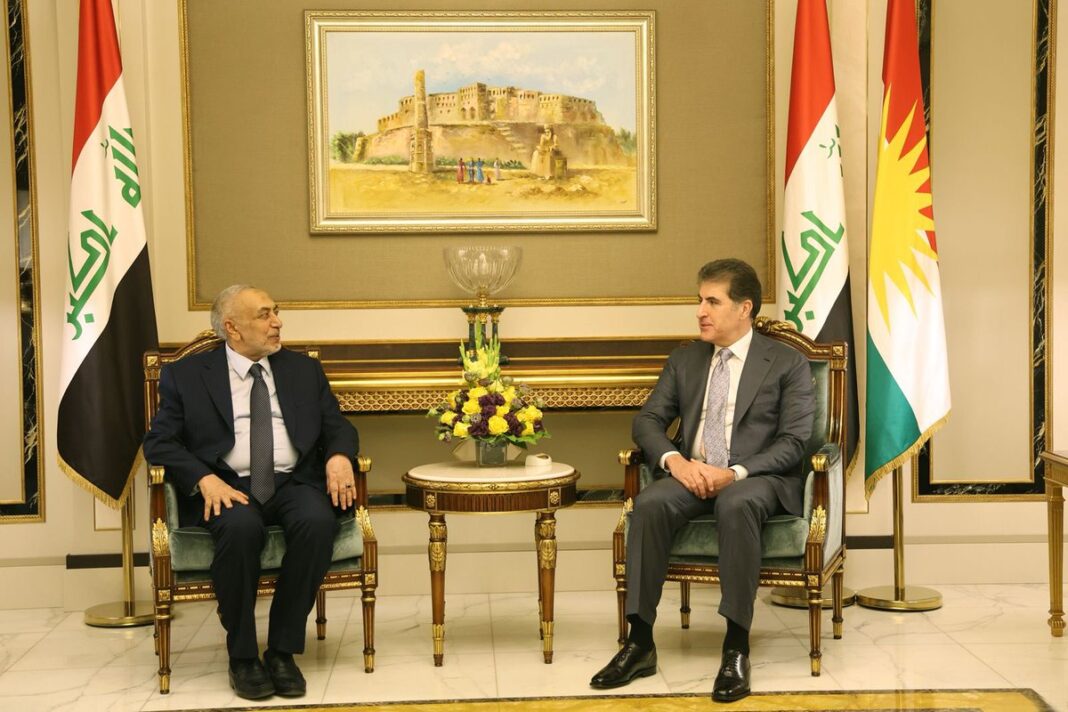Baghdad – The salary crisis in the Kurdistan Region has reached a critical stage. Over 1.2 million public employees remain unpaid for more than two months. In response, top leaders are accelerating efforts to find a solution.
On Sunday, Kurdistan Region President Nechirvan Barzani as well as, Prime Minister Masrour Barzani welcomed Iraqi Parliament Speaker Mahmoud al-Mashhadani in Erbil. Their talks focused on the long-running budget dispute between Erbil and Baghdad. Kurdistan Region President Nechirvan Barzani also joined the discussions to underline the issue’s urgency.
Tensions between the Kurdistan Regional Government (KRG) and Iraq’s federal government have intensified since May. The Iraqi finance ministry suspended budget transfers to the KRG. This decision halted salaries for teachers, healthcare workers, and civil servants across the region.
The federal government blames the KRG for not sending its agreed oil share. Baghdad claims Erbil exceeded its 12.67 percent budget entitlement. Additionally, oil exports through the Iraq-Turkey pipeline remain frozen. This stoppage, in effect since March 2023, has worsened the financial crisis.
However, leaders are still pursuing dialogue. “Salary issues should not be tied to political disagreements,” a KRG statement declared. Talks continue with hopes of reaching a breakthrough soon.
The Sunday meeting also included Shakhawan Abdullah, the second deputy speaker of the Iraqi parliament. According to an Iraqi parliament statement, the visit aimed to strengthen cooperation. It also sought to resolve federal-regional disputes.
Negotiations about oil exports remain a sticking point. Baghdad wants 400,000 barrels per day from the KRG. Erbil, however, offers only 280,000 barrels, citing production limitations. The disagreement has blocked progress on broader budget talks.
KDP lawmaker Sherwan Dubardani confirmed that Mashhadani may also meet KDP leader Masoud Barzani. Such meetings aim to build consensus and unlock stalled payments.
The salary crisis in the Kurdistan Region is no longer just a financial matter. It now threatens broader political stability. Both sides acknowledge the urgency and say they remain committed to finding a solution.
As discussions continue, the salary crisis in the Kurdistan Region remains unresolved—but efforts to end it are intensifying.



